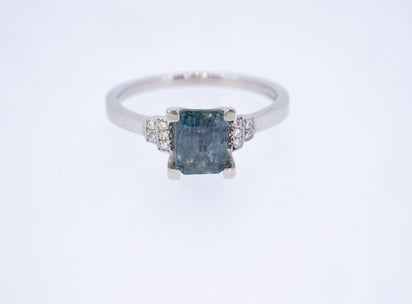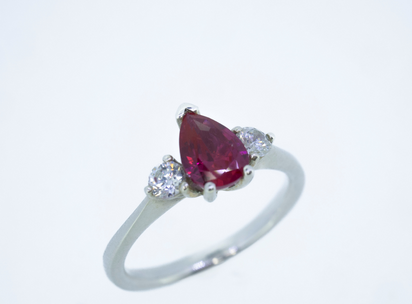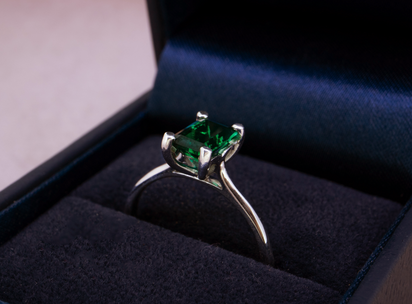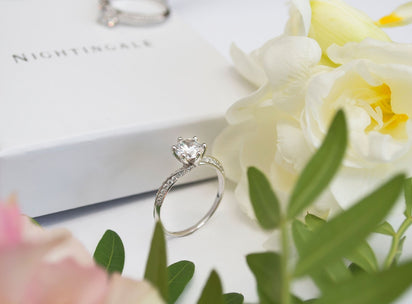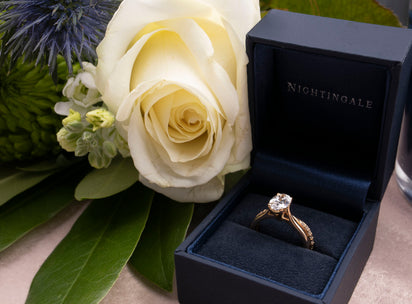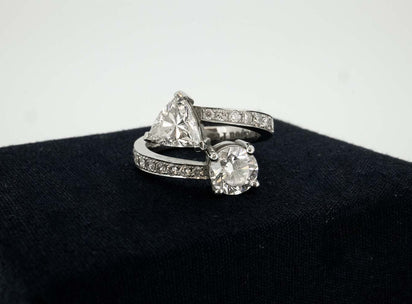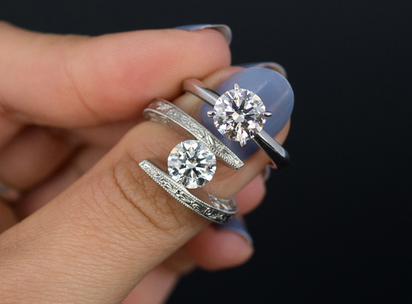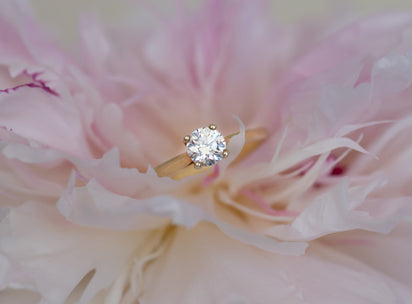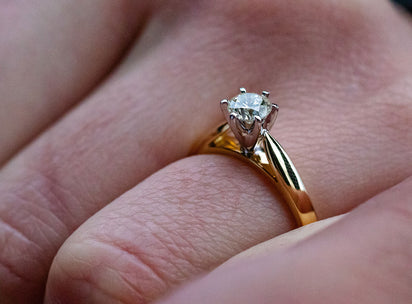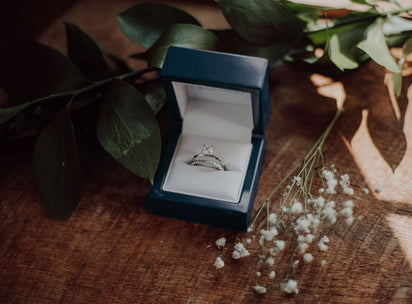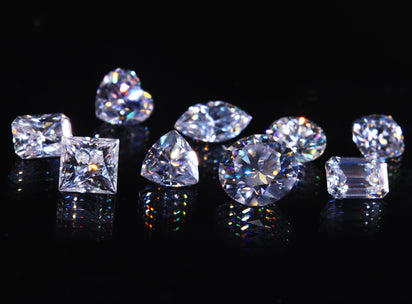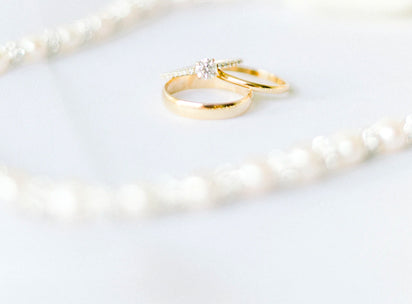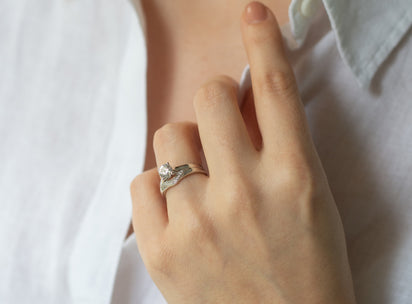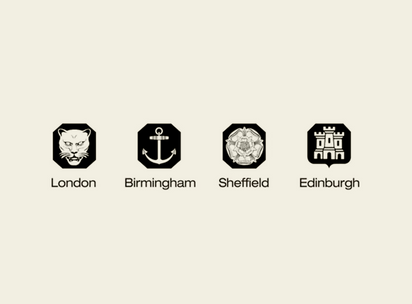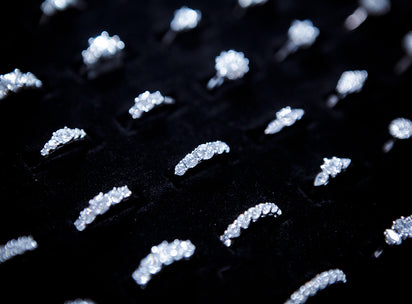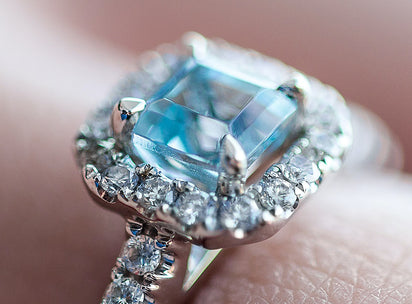The simple guide to diamond grading certificates
Whenever you buy a diamond you should receive a certificate as part of the sale. This certificate is really important because it documents key details about the diamond's cut, clarity and colour. This information is verified by an independent gemology institute to ensure the information is reliable and accurate.
You should always buy a diamond that is certified in this manner, as it's more or less the only real assurance you have that the quality is accurate and you aren't receiving a lower value diamond than what you're paying for.
Sound simple?
On the face of it, the system sounds pretty simple. You buy a diamond and get a certificate that confirms the diamond's quality. However, it's not that straightforward unfortunately.
Different diamond institutes have different standards, which can significantly affect the grade awarded and therefore the value. Two graders could give the same diamond different gradings, and neither would be wrong because diamond grading is actually a subjective endeavour and there's no universal measure for what constitutes a certain colour or clarity grade.
A grader giving out a higher or lower grade than another grader doesn't necessarily mean that one is better than the other, it's just that they have different standards. What's more important how consistent a particular lab is with their own grading.
The more consistent, the more well regarded a lab is. This reliability is extremely important because a lot of a diamond's value comes from the certificate it is issued with, so traders need to be able to trust that a diamond with a specific grade from a specific lab is worth £xx amount when selling to customers.
Do lab-grown diamonds have a diamond certificate?
Yes! Lab grown diamonds have identical grading certificates to mined diamonds, after all, lab diamonds are identical to those mined from the ground. You can learn more about lab diamonds with our complete guide here!
Diamond grading institutions of note
There are scores of diamond grading labs, but only a few really worth talking about. At Nightingale we only use diamonds with certificates from the top tier of testing labs. Read on to find out more about the institutions that grade your gemstones!
Gemological Institute of America (GIA)
Established in 1931, GIA is the world's largest and perhaps most respected nonprofit institute of gemological research and learning.
The GIA created the modern 4Cs standard for valuing diamonds and the entire structure of gem grading which has been adopted by other testing institutions.
The majority of our mined diamonds come with GIA certificates which ensures an accurate and consistent grading, giving you peace of mind when buying.
International Gemological Institute (IGI)
Renowned for grading diamonds, coloured diamonds, rubies and sapphires IGI is one of the most trusted names for the certification of diamonds and gemstones . IGI was established in 1975 and is today the oldest laboratory in Antwerp
With laboratories in Antwerp, New York, Hong Kong, Mumbai, Bangkok, Tokyo, Dubai, Tel Aviv, Toronto, Los Angeles, Kolkata, Delhi, Thrissur Surat, Chennai, Ahmedabad and Hyderabad, the IGI Report is regarded as one of the standards of excellence in gemology.
IGI grade the majority of our lab-grown diamonds, and indeed most lab-grown diamonds in general. They're known to be very reliable and they also get bonus points for their goal to become the first carbon-neutral grading institution in the world by 2022!
What information is on a diamond certificate?
Your diamond certificate will have some key information that verifies certain qualities of the gemstone.
-
Laser inscription ID - This contains the reference number which you can enter on the grading lab's website to confirm the authenticity of the certificate. It's very important that you verify this number, especially if you're shopping online or buying a recycled diamond.
-
Shape and cutting style - A simple description of a diamond's shape and style e.g 'round brilliant cut'.
-
Measurements - This is the dimensions of the diamond, usually expressed by 3 values in millimeters to describe the length, width and depth of the gemstone. For round diamonds instead of the 3 dimensions you will usually get the minimum to maximum diameter along with depth which is displayed as 'minimum diameter - maximum diameter x depth'.
-
Carat weight - The size of your diamond as measured in carats.
-
Colour grade - The higher the grade here the closer a diamond is to colourless.
-
Clarity grade - The less blemishes and marks the diamond has the higher this grade will be.
-
Cut grade - This will appear on round cut diamonds only and refers to how well the diamond's cut refracts light. A higher quality cut will create a much better sparkle. You won't see this information on certificates for fancy cut diamonds (fancy cut referring to anything that isn't round) as there isn't universal criteria for these cuts.
-
Finish - This is made up of two characteristics. First of all, polish, which refers to how well the diamond was polished after being cut. The presence of any roughage or blemishes will count against the rating. The second characteristic is symmety, which refers to how even the cut of the diamond is. Any variance between equivalent lines or cuts will lead to a lower score here.
-
Fluorescence - Unlike the other qualities, fluorescence is only visible when put under a UV light. Diamonds with high fluorescence will display blue lights when under UV rays. This has absolutely zero effect on the diamond's appearance under normal light, but it's useful information to have for identification purposes.
Can I buy a diamond without a grading certificate?
You can...but there's very little upside.
A diamond certificate gives you a lot of protection against fraud and scams. Without third-party verification, you're putting all your faith in the seller to have given you accurate information. And given that you probably don't have the years of experience to properly appraise a diamond yourself, the likelihood of you losing money goes up astronomically.
This is especially true if you try to buy a diamond without a certificate online. (as a side note, you should always verify the authenticity of a diamond certificate by entering it's number on the grading lab's website).
Additionally, if you buy a diamond without a certificate its resale value drops to almost nothing. We hope you don't find yourself in a position where you want or need to sell your diamond ring, but it's worth considering.
The final word on diamond certificates...
A diamond certificate is almost as important as the actual diamond itself. Don't buy one without the other. Make sure it's from a reputable testing lab (and is genuine), put it in a safe place and you shouldn't run into any issues!
